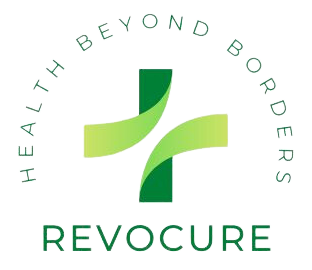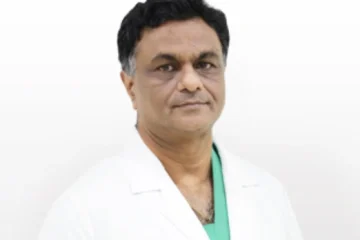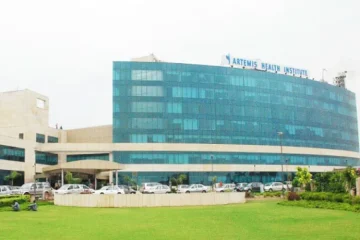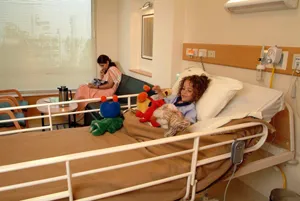Tetralogy of Fallot (TOF)
Tetralogy of Fallot is a rare but serious congenital heart defect present at birth, disrupting normal blood flow through the heart. It results in oxygen-poor blood circulating through the body, often leading to symptoms like cyanosis (a bluish skin tint), fatigue, difficulty breathing if left untreated.
The condition involves four distinct heart abnormalities: Ventricular Septal Defect (VSD): A hole between the heart’s lower chambers, Pulmonary Stenosis: Narrowing of the pathway from the right ventricle to the lungs, Overriding Aorta: The aorta sits over the VSD, receiving blood from both ventricles, Right Ventricular Hypertrophy (RVH): Thickening of the right ventricle’s muscle wall due to overwork, The precise causes are often unknown, but contributing factors include genetics, maternal infections like rubella, alcohol consumption during pregnancy, other environmental influences. Early diagnosis through fetal echocardiography or newborn screenings is crucial for timely intervention.
Surgical correction remains the stard treatment, often performed in infancy. With successful surgery regular cardiology follow-ups, most patients go on to live full, active lives.
Cost: Starts from USD 5600–6000 depending on the complexity hospital.
Certifications
Patient Care Highlights
Report abuse
Report abuse
Explore More Options
Treatments Across Specialties
What Our Other Patients Are Saying
Get in Touch
Need Help? We're Here for You
Have questions about treatment, doctors, or travel? Our support team is just a message away, ready to guide you every step of the way.
Get expert advice and compassionate support today.
Free Consultation

We extend our heartfelt gratitude to each supporter who has been a pillar of strength for these young warriors. Your belief in the healing power of compassion has made these success stories possible.
As we celebrate these victories, let’s renew our commitment to making a lasting impact on the lives of those facing medical challenges. Together, through Revocure, we can continue to be a source of hope, healing, and happiness.
Thank you for being an indispensable part of these transformative journeys.
Amir Siddiqui
Director & Founder
Revocure




























